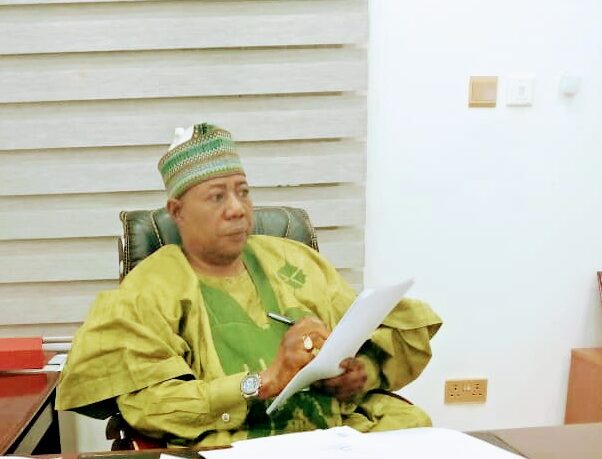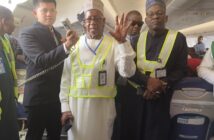The fortune of the Naira, Nigeria’s national currency, had been on a terrible downward trend in the last one year. In my past series, I have painstakingly identified concatenation of factors that have occasioned Naira’s free fall, including the nefarious activities of undesirable elements working against our collective interests.
However, with the concerted efforts of the Renewed Hope government led by Bola Ahmed Tinubu, the Naira has continued to rebound impressively. With the value of the naira already stronger at around N1150 to the dollar at the parallel market, a big jump from the low of N1890 which it was earlier this year, Goldman Sachs Group Inc is projecting that the naira will be among the best performing currencies in the world.
The naira hit a four-month high of 1,142.38 per US dollar at the official foreign exchange (FX) market on Friday as dollar supply increased after the holidays. According to Nairametrics, Nigeria’s foreign exchange (FX) reserves recorded a significant downturn, plunging by approximately $2.16 billion in 29 days, amidst the Central Bank of Nigeria’s (CBN) robust efforts to stabilise the naira. Current figures from the CBN, as of April 15, 2024, reveal that the FX reserves are now positioned at $32.29 billion, a stark decline from $34.45 billion recorded on March 18, 2024.
In fact, it was a cheering news for patriotic Nigerians few days ago when Goldman Sachs, a leading global investment bank, predicted that Nigeria will emerge as the world’s fifth largest economy by 2075, in a groundbreaking report where it identified the 25 largest economies.
The report also projected the country to rank as the world’s 15th-largest economy by 2050. The top global investment banker further predicted the country’s Gross Domestic Product (GDP) to reach $13.1 trillion by 2075, further solidifying its position as Africa’s largest economy.
The Goldman Sachs Global Investment Research (2022) report, which revealed the “25 Largest Economies in the World by 2075” puts Nigeria ahead of Pakistan at 6th position, Egypt (7th), Brazil (8th), Germany (9th), UK (10th) Mexico (11th), Japan (12th), Russia (13th), Philippines (14th), and France (15th).
Other countries trailing Nigeria in the forecast included Bangladesh, which is projected to emerge as the 16th world’s largest economy by 2075, Ethiopia (17th), Saudi Arabia (18th), Canada (19th), Turkey (20th), Australia (21st), Italy (22nd), Malaysia (23rd), South Korea (24th), and South Africa, which occupied the 25th position.
The glimpse into the expected massive economic gains projection for 2075 underscores the resurgence of global confidence in President Bola Ahmed Tinubu’s economic reforms.
Though the Renewed Hope government is firing from all cylinders, another area of road infrastructures is performing astronomically like the forex. Suffice to restate that in the last few decades, bad roads have turned Nigeria into a land of wasted economic opportunities. Many economic actors cannot maximize their time and duly harness possibilities for business development because of ineffective transportation systems.
It is safe to say the economic potential of major economic hubs and, by extension Nigeria, has been stifled because of poor road conditions. This inefficiency in transportation hinders businesses from reaching their full potential and creates a drag on the country’s economic development.
Development experts have opined that investing in the development of an effective transportation network is crucial for creating an enabling environment for inclusive economic prosperity. Good roads would not only improve access to markets for rural producers but also foster intercultural dialogue and understanding. This would ultimately lead to a more cohesive and prosperous Nigeria.
It is against this backdrop that the Tinubu-led Renewed Hope government, in its infrastructure masterplan, conceived the ambitious road project, stretching a staggering 700 kilometers, which will connect the bustling metropolis of Lagos with the historic city of Calabar. Weaving its way through eight states – Lagos, Ogun, Ondo, Delta, Bayelsa, Rivers, Akwa Ibom, and Cross River – the highway is more than just a road; it is a potential economic game-changer. Experts predict a significant boost in trade, tourism, and job creation, ushering in a new era of prosperity for the entire coastal region.
This ambitious project, stretching a staggering 700 kilometers, will connect the bustling metropolis of Lagos with the historic city of Calabar. Weaving its way through eight states – Lagos, Ogun, Ondo, Delta, Bayelsa, Rivers, Akwa Ibom, and Cross River – the highway is more than just a road; it is a potential economic game-changer. Experts predict a significant boost in trade, tourism, and job creation, ushering in a new era of prosperity for the entire coastal region.
The creation of new jobs is another significant benefit. The construction phase itself will generate a substantial number of employment opportunities for skilled and unskilled workers. Once completed, the highway will create a demand for new services along its route, leading to the growth of the transportation, logistics, and hospitality sectors.
In terms of the quality of work expected in construction of the Lagos-Calabar coastal super highway, it will be constructed with concrete technology, while it is expected to drive investment opportunities and quicken returns on investment within economic corridors in Lagos State metropolis.
It is also expected to further expand emerging markets for South South and South East economic hub.
Sadly, while Nigerians of goodwill are celebrating this landmark initiative, cynics are puncturing holes in the project, adducing all manners of flimsy reasons. For instance, one of the lead critics of this super project, a prominent politician, has held sensitive positions in this country but all the same cannot ascribe one significant project to his name in all his time in politics.
It is a case of a pot calling kettle black. In his days in office, the N200 billion allocated to road construction couldn’t be accounted for. The late Tony Anenih, the then minister of works, was said to be in connivance with these failed politicians now throwing tantrum everywhere.
He complained that the project was over invoiced forgetting that Tinubu is a man of taste and would not condescend to do a sham job in the name of road construction.
Japan and China copied from each other certain technological initiatives and developments to become advanced countries and world biggest economies and are better off for it today. Is it not better to adopt these excellent economic development initiatives than the arts and science of embazelment?
The Lagos-Calabar highway won’t be just a high-speed route; it will be a scenic journey through some of Nigeria’s most captivating coastal towns and cities. Leaving the vibrant energy of Lagos behind, the highway will head west, passing through the industrial heartland of Ogun State with its numerous manufacturing plants. Motorists can then look forward to the lush greenery of Ondo State, known for its beautiful beaches and nature reserves.
Continuing eastward, the highway enters Rivers State, home to the nation’s oil capital, Port Harcourt. From here, the route cuts through Akwa Ibom State, known for its scenic coastal plains and thriving agricultural sector. The final leg will see the highway reach its destination: the historic city of Calabar in Cross River State, a cultural center with a rich colonial past.
The Lagos-Calabar highway is more than just a physical connection between cities; it’s a bridge to a brighter economic future for the entire region. The improved travel time will significantly benefit businesses transporting goods across state lines. Imagine fresh seafood caught off the coast of Akwa Ibom reaching Lagos markets within a day, or manufactured products from Ogun State reaching Calabar in record time. This efficiency will not only reduce costs but also open up new markets, fostering economic diversification and growth.
The highway’s impact won’t be limited to businesses. Tourists can also expect a more enjoyable travel experience. With shorter travel times and easier access to coastal destinations, the highway is poised to make the region a premier tourist hub. Imagine spending a weekend soaking up the sun on the pristine beaches of Ondo or exploring the historical landmarks of Calabar – all within a comfortable driving distance. This surge in tourism will undoubtedly lead to the creation of new hotels, restaurants, and recreational facilities, further boosting the region’s economy.
The time for regional and ethnic politics is over. International propagandists whom Nigerians thought will ensure the constructions of boreholes and vocational training in their communities, instead, looted the public funds. Now they are the ones brazenly raising their heads to sabotage the Renewed Hope agenda.
Take it or leave it, Nigeria’s President Tinubu who listens to the cry of the citizens has done well. He should also consider the nation’s priority on economic infrastructure like electricity projects that will boost domestic production, promote foreign investments, and stabilise the value of the Naira
Let me thank the National Security Adviser (NSA), Nuhu Ribadu. Through productive intelligence operations, he has ensured the rescue of over 1,000 kidnap victims silently without noise. May the Almighty God bless our president, Bola Tinubu and Nigerians. Barka da Sallah in areas!



